Politics
Elseddik Haftar, the Other Libya
In the Haftar family, we know the father: Marshal and leader of the Libyan National Army (ANL). A Libyan tutelary figure. Since the fall of Muammar Gaddafi on October 20, 20112, who died in the city of Sirte, a stronghold of the Ferjany tribe, from which the family originated, Khalifa Haftar has reigned over the east of the country. It is often ignored that the Benghazi master has eight sons – certainly one of his only points in common with the former “guide of the revolution”.
Elseddik Haftar – When charisma rhymes with leadership
The eldest, Elseddik is a doctor of international law. He wears the suit and the fine moustache with elegance. Nothing to do with the trellis, the uniform of the members of the clan. Far from the sound of bullets, Dr Elseddik prefers start-ups and economic and social development programs. A builder at heart, Doctor Elseddik envisages the reconstruction of a fragmented and clanified Libya.
He wants it pacified, reunited and on the move….An influential figure in the field of engineering and infrastructure in Libya, the “Doctor” as he is nicknamed, oversees projects related to the reconstruction and development of roads, buildings and public services in Libyan cities, thus contributing to the improvement of living conditions and the development of community infrastructure.
Its objective: To breathe new life into Libya and thus get out of the deadly impasses that plague the country. More than ten years of conflict have left it in full decline. Two governments, the proliferation of armed militias and terrorist groups. A military, political and social divide without counting on the ever-increasing migration crisis.
Regain your sovereignty
“Take in hand the ongoing reconciliation process in your country, Africa and all the other partners will accompany you there until the general elections which should seal the return to constitutional order”, this exhortation was launched by the leader of the Congolese State Denis Sassou N’Guesso, Chairman of the High Level Committee of the African Union (AU), on July 20, as part of the preparatory meeting for the inter-Libyan reconciliation conference.
A priority – THE priority. Recreate the country’s unity and create security for the Libyan people, bruised by years of lead, and find peace.
“We have to turn the page, turn the bloody page of violence, of hatred to move towards reconciliation. To put my country back on track, all parts of the population will have to take each other by the hand, whatever their tribe, their social class. The urgency today is to save the country from the current situation in which we find ourselves after the events. This country must be built on democratic foundations, that is to say, a multilateral country, where everyone has their place in this reconstruction. This is Doctor Haftar’s vision.
The Future of Libya – the Strength of its Youth
Those under 25 represent almost half of the seven million Libyans, which is to say that their future is crucial for the development of the country. A youth raised in the school of propaganda and the “green book”, a veritable bible of Muammar Gaddafi. A youth, which today dreams of an elsewhere, since its horizon has still not cleared up. In this oil-rich country – it has the largest reserves in Africa – the Libyan population does not see any future.
Galloping corruption, record unemployment rate, and economic crisis direct consequence of political insecurity. Many young people are forced into unregulated and underpaid jobs. As for those under ten, a large number of them do not go to school, the fault for the ten years of conflict.
A reality against which the discreet but influential “Doctor” has decided to attack.
“ The education of boys and girls is a non-negotiable priority for my country. It is essential to give back to this youth, the desire to build and to undertake”. And to financially support innovative projects aimed at young people. But not only… ” It is time to put in place a policy of equality between men and women. The place of the Libyan woman is essential in our society. The right to freedom, the right to work and the right to emancipation. Libya must take this path. »
A Haftar dynasty?
In 2017, Doctor Elseddik joined the very closed circle of the “Eastern Forces General Staff”, a government composed mainly of the sons and relatives of the strongman of Benghazi. To the “Doctor”, Marshal Haftar entrusted diplomacy. The task force, since Elseddik spent his doctorate in Egypt, a country with which the Haftars have kept strong ties. A key position, which could position him favourably to enter the race for succession in place of his father.
One thing is certain: At 49, Doctor Elseddik presents himself as a diplomatic and consensual figure, well-established with many Libyan tribes, one of the political keys to managing this country.
It remains to be seen whether this new challenge will tempt “Doctor” Elseddik HAFTAR.
Originally published at Almouwatin.com
Politics
Critical Oversight: ODIHR Prepares for Local Elections in Bosnia and Herzegovina
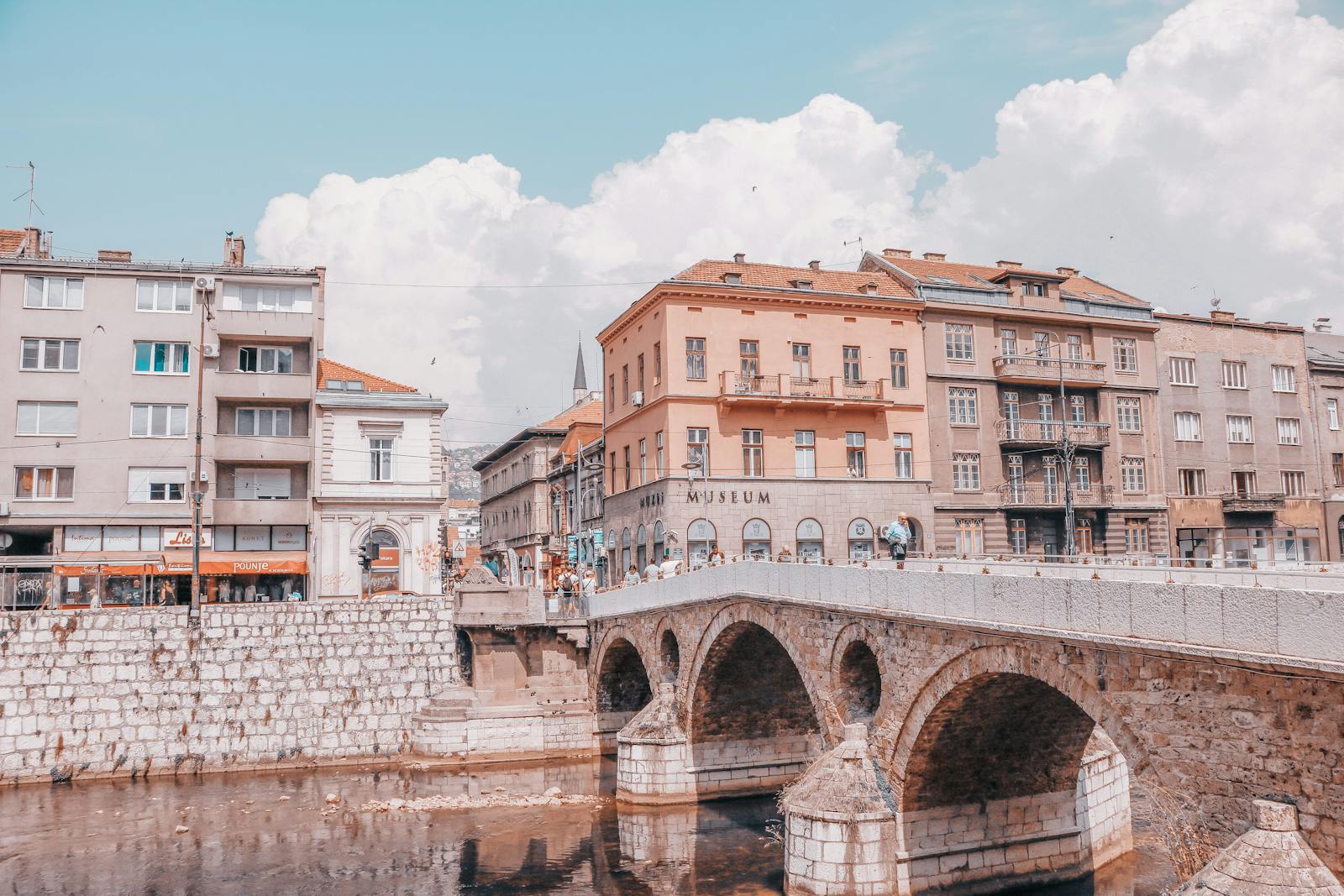
SARAJEVO, 30 August 2024 – In a critical step toward upholding democratic standards, the Organization for Security and Co-operation in Europe (OSCE) Office for Democratic Institutions and Human Rights (ODIHR) has officially opened an election observation mission in Bosnia and Herzegovina for the upcoming local elections scheduled for 6 October 2024. This initiative follows an official invitation from the national authorities and the results of a needs assessment mission conducted in May.
Heading the mission is Corien Jonker, who will lead a core team of 11 international experts based in Sarajevo. In addition, the mission will deploy 20 long-term observers throughout the country starting on 6 September. To bolster the observation efforts further, ODIHR plans to request an additional 300 short-term observers, who are expected to arrive several days prior to election day.
The primary objective of the mission is to assess the elections’ compliance with OSCE commitments, international obligations, and standards for democratic elections, as well as with the national legislation of Bosnia and Herzegovina. Observers will meticulously monitor key aspects of the electoral process, which includes both offline and online campaign activities, the performance of the election administration at all levels, the implementation of election legislation, and the overall respect for fundamental freedoms.
A significant focus will also be placed on evaluating the work of public and private media during the election period and monitoring the resolution of any election disputes that may arise. Additionally, observers will assess the implementation of previous ODIHR recommendations related to electoral processes in the region.
Integral to the observation mission is the engagement with a diverse array of stakeholders. This includes meetings with national authorities, representatives of political parties, civil society organizations, media entities, and members of the international community. Such interactions will provide vital insights into the electoral environment and the challenges faced during the election period.
To keep the public informed, the ODIHR will release an interim report approximately two weeks before the elections, detailing the mission’s observations and activities up until that point. Following the elections, a statement of preliminary findings and conclusions will be presented at a press conference the day after the polling. A comprehensive final report assessing the entire election process, complete with recommendations for future improvements, will be published in the months following the elections.
As Bosnia and Herzegovina approaches these crucial local elections, the ODIHR’s commitment to monitoring and assessing the democratic process underscores the importance of transparency and accountability in fostering a robust electoral environment.
Politics
German MEP Dennis Radtke takes on influential role in the European Parliament
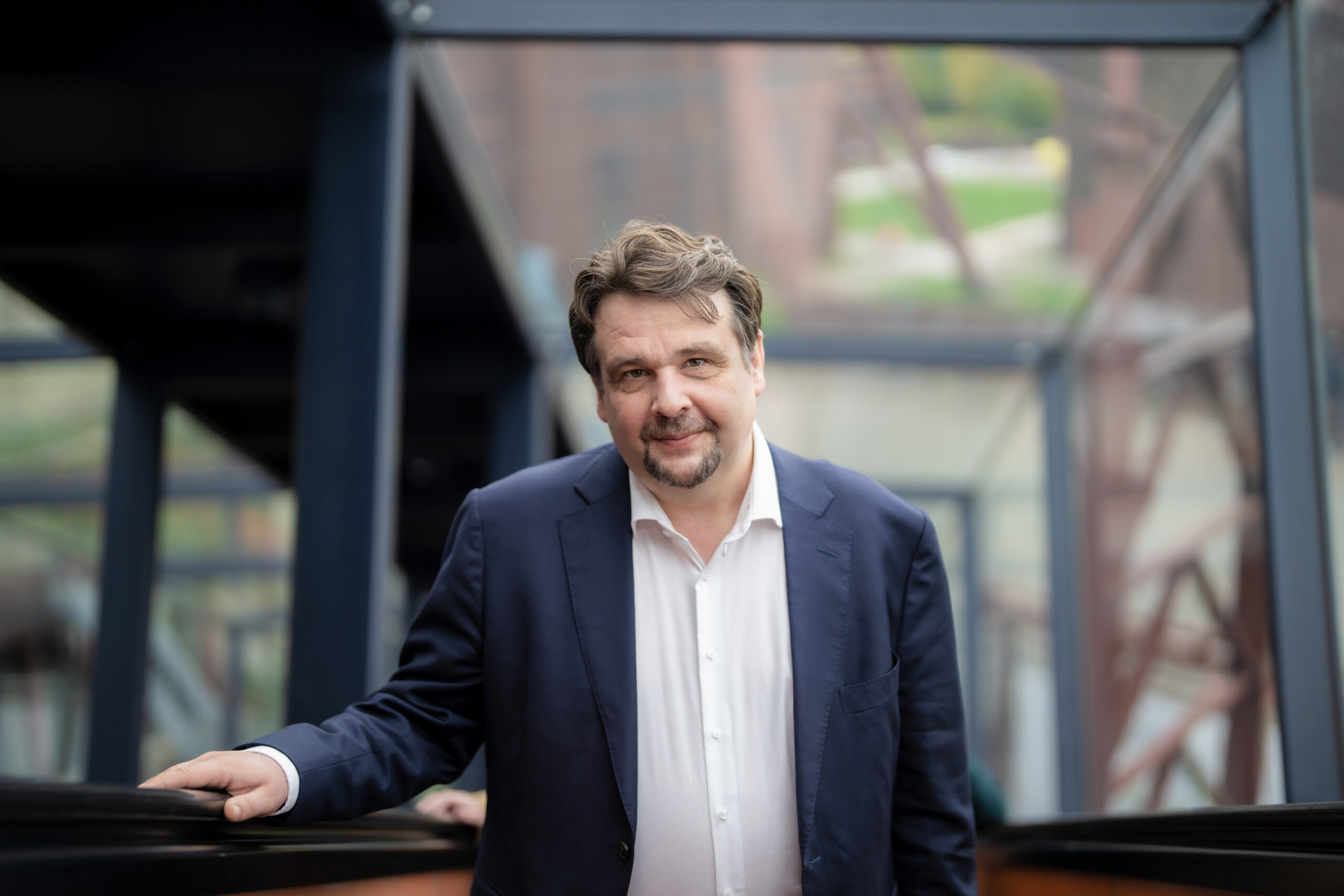
STRASBOURG/BRUSSELS/BERLIN/DÜSSELDORF/BOCHUM. Yesterday, Wednesday (17 July 2024), Dennis Radtke MEP from North Rhine-Westphalia (NRW) in Germany was confirmed as social policy spokesperson for the EPP Group in Strasbourg, where the European Parliament is being constituted this week.
“I am delighted to be able to continue to lead the EPP Group in the European Parliament’s Committee on Employment and Social Affairs (EMPL) and promote social policy issues,” said Dennis Radtke shortly after his election.
He also immediately formulated his clear ambition: “There is still a lot to do on the road to a more social Europe and we as the EPP Group want to play a leading role in this.”
According to the CDU politician, many projects have already been implemented: a European Minimum Wage, strengthening the rights of platform workers, social and climate funds and a European care strategy. “The great trust placed in me by my colleagues in the EPP Group motivates me strongly to continue actively working for a socially just Europe,” continued Radtke.
In his role as so-called coordinator of his political group, Dennis Radtke decides, for example, on the distribution of legislative and non-legislative reports and basically steers the work in the EMPL Committee.
One of Radtke’s next important projects for the new 10th parliamentary term of the European Parliament is to improve the protection of workers. “In its new mandate, the European Labour Authority (ELA) must be given every opportunity to enforce worker protection in the European Union, including across borders,” says the CDU politician.
Dennis Radtke is 45 years old, married and the father of two children. He comes from Wattenscheid (Bochum, Germany) and has been a member of the European Parliament since 2017. Radtke is a member of the Committees on Employment and Social Affairs (EMPL) and on the Environment, Public Health and Food Safety (ENVI).
The German CDU politician is President of the European Union of Christian Democratic Workers (EUCDW), Deputy Federal Chairman and North Rhine-Westphalian State Chairman of the Christian Democratic Workers’ Union (CDA), the CDU’s labour wing. At the CDA national conference on 14 and 15 September 2024 in Weimar (Thuringia), Dennis Radtke will run for the federal chairmanship of the CDA Germany in succession to Minister Karl-Josef Laumann MdL.
Politics
Roberta Metsola re-elected as President of the European Parliament
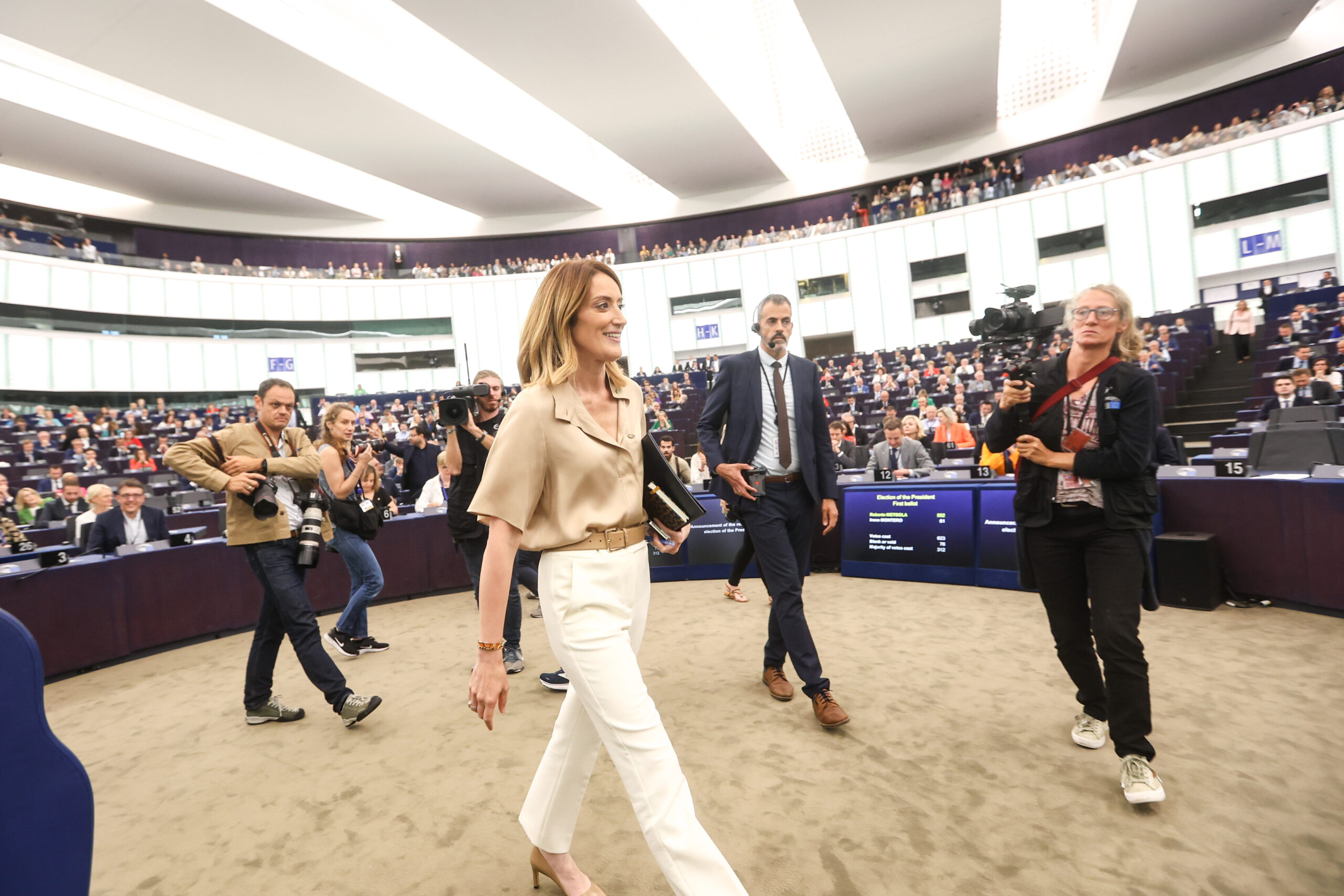
On Tuesday, MEPs re-elected Roberta Metsola (EPP, MT) as President of the European Parliament until 2027, with 562 votes in the first round.
Roberta Metsola won the election in the first round of voting, where she received an absolute majority of 562 votes cast out of 699 by secret paper ballot, among two candidates. She will continue to lead Parliament for the first two and a half years of the 10th legislative term.
Voting results
- Roberta Metsola (EPP, MT) 562
- Irene Montero (The Left, ES) 61
Total votes cast: 699
Blank or invalid votes: 76
Absolute majority needed: 312
Who is Roberta Metsola
Born in Malta in 1979, Roberta Metsola has been an MEP since 2013. She was elected First Vice-President in November 2020, and was Parliament’s acting President after President Sassoli passed away on 11 January 2022. On 18 January 2022, she was elected President for the second half of the 9th legislative term. She is the third female President of the European Parliament, after Simone Veil (1979-1982) and Nicole Fontaine (1999-2002).
Addressing the House after she was elected, President Metsola said: “Together, we must stand up for the politics of hope, for the dream that is Europe. I want people to recapture a sense of belief and enthusiasm for our project. A belief to make our shared space safer, fairer, more just and more equal. A belief that together we are stronger and we are better. A belief that ours is a Europe for all.”
A full version of the President’s address will soon be available on Parliament’s website.
-

 Sports7 days ago
Sports7 days agoInter on autopilot, everything easy with Lecce
-

 EU & the World7 days ago
EU & the World7 days agoHailey Bieber Gives Birth to First Child, Welcomes Son With Husband Justin: Their Baby’s Name
-

 Sports6 days ago
Sports6 days agoOfficial: Juventus announces sixth purchase
-

 Health & Society6 days ago
Health & Society6 days agoThe intoxicated society
-
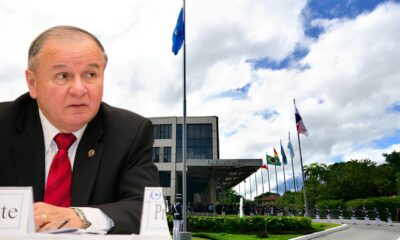
 Politics7 days ago
Politics7 days agoElias Castillo: A Stalwart of Latin American Legislative Leadership
-

 EU & the World7 days ago
EU & the World7 days agoCountry Singer Thomas Rhett Talks ‘Hardships’ He Faced With His Family and Career
-
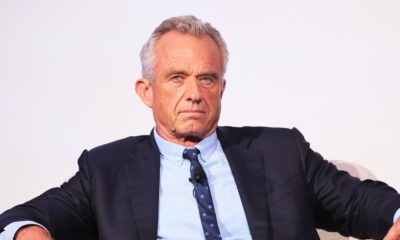
 EU & the World7 days ago
EU & the World7 days agoRobert F. Kennedy Jr. Endorses Donald Trump & Suspends Presidential Race
-

 Sports7 days ago
Sports7 days agoGenoa passes in Monza with Pinamonti










